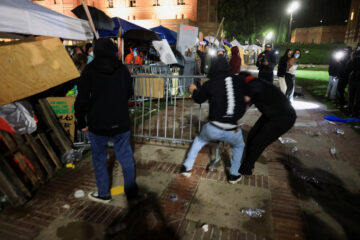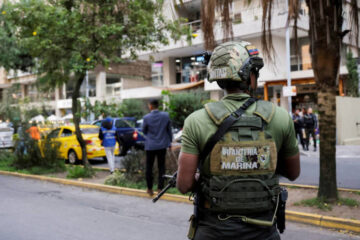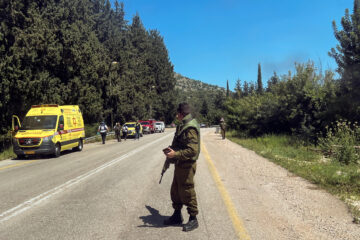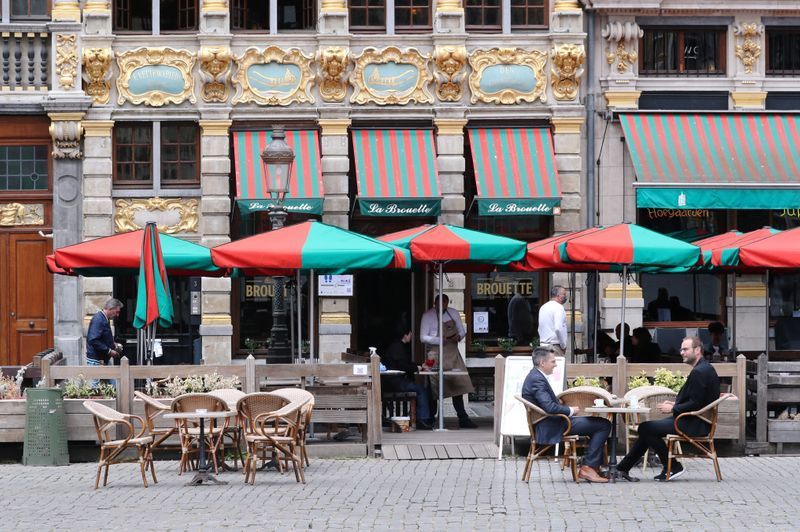Iraq forces push into streets of IS-held Fallujah
Iraqi forces thrust into Fallujah Monday, ushering a new urban phase in the week-old operation to retake the jihadist bastion that also raised concerns over the fate of trapped civilians.
The drive to recapture the first city to be lost from government control in 2014 came as fighting also raged in neighbouring Syria, leaving huge numbers of civilians exposed.
Led by the elite counter-terrorism service (CTS), Iraq\’s best trained and most seasoned fighting unit, the forces pushed into Fallujah before dawn, commanders said.
"Iraqi forces entered Fallujah under air cover from the international coalition, the Iraqi air force and army aviation, and supported by artillery and tanks," said Lieutenant General Abdelwahab al-Saadi, the commander of the operation.
Yahya Rasool, the spokesman for the Joint Operations Command coordinating the fight against IS in Iraq, said the jihadists had so far resisted mostly with snipers, booby-traps and suicide car bombs.
The forces have not yet ventured into the centre but they recaptured some areas in a southern suburb and took up positions on the eastern and northern fringes.
The involvement of the elite CTS marks the start of a phase of urban combat in a city where in 2004 US forces fought some of their toughest battles since the Vietnam War.
The week-old operation had previously focused on retaking rural areas around Fallujah, which lies just 50 kilometres (30 miles) west of Baghdad.
It had been led by the Hashed al-Shaabi paramilitary force, which is dominated by Tehran-backed Shiite militias.
They were still in action Monday, attempting to clear an area northwest of Fallujah called Saqlawiya, officers said.
Only a few hundred families have managed to slip out of the Fallujah area ahead of the assault on the city, with an estimated 50,000 civilians still trapped inside, sparking fears the jihadists could try to use them as human shields.
The only families who were able to flee so far lived in outlying areas and took serious risks to reach camps while those in the heart of Fallujah have been unable to leave.
"Civilians are trapped inside the city of Fallujah as fighting intensifies. With every moment that passes, their need for safe exits becomes more critical," said Nasr Muflahi, the Norwegian Refugee Council\’s Iraq director.
In Amriyat al-Fallujah, a government-controlled town to the south of the jihadist stronghold, civilians trickled in, starving and exhausted after walking through the countryside for hours at night, dodging IS surveillance.
"I just decided to risk everything. I was either going to save my children or die with my children," said Ahmad Sabih, 40, who reached the NRC-run camp early on Sunday.
A senior police commander said his forces had assisted 800 civilians fleeing areas north of Fallujah on Monday.
Fallujah is one of just two major urban centres in Iraq still held by IS jihadists.
They also hold Mosul, the country\’s second city and de-facto jihadist capital in Iraq, east of which Kurdish-led forces wrapped up a two-day operation on Monday.
Nine villages were retaken from IS in the operation, which peshmerga officers said left 140 jihadist fighters and four peshmerga dead.
The jihadists holed up in Fallujah are believed to number around 1,000.
What resources IS will invest in the defence of Fallujah remains unclear. The city has been isolated for months but it looms large in modern jihadist mythology.
Fallujah is expected to give Iraqi forces one of their toughest battles yet but IS has appeared weakened in recent months and has been losing territory consistently in the past 12 months.
The government says IS now controls around 14 percent of the national territory, down from 40 percent in 2014.
However, as the "caliphate" it declared two years ago unravels, IS has been reverting to its old tactics of sowing terror by targeting civilians.
A fresh wave of bomb attacks claimed by IS struck the Baghdad area on Monday, killing 11 people in three separate blasts.
In northern Syria, clashes raged around the flashpoint town of Marea as IS pressed an assault on non-jihadist rebels.
The IS onslaught has threatened tens of thousands of people, many of them already displaced from other areas, who have sought refuge in camps near the Turkish border.
Gerry Simpson, senior researcher at Human Rights Watch, told AFP 165,000 civilians were now stuck between IS fighters, Kurdish forces and the border.
"What more does the US, EU and UN need to call on Turkey to give these people refuge," he asked.
In divided Aleppo city, 15 people, including two children, were killed in the rebel-controlled eastern neighbourhoods in heavy bombardment on Monday morning, the civil defence said.
SOURCE: AFP
[do_widget_area inner_adsbar]










